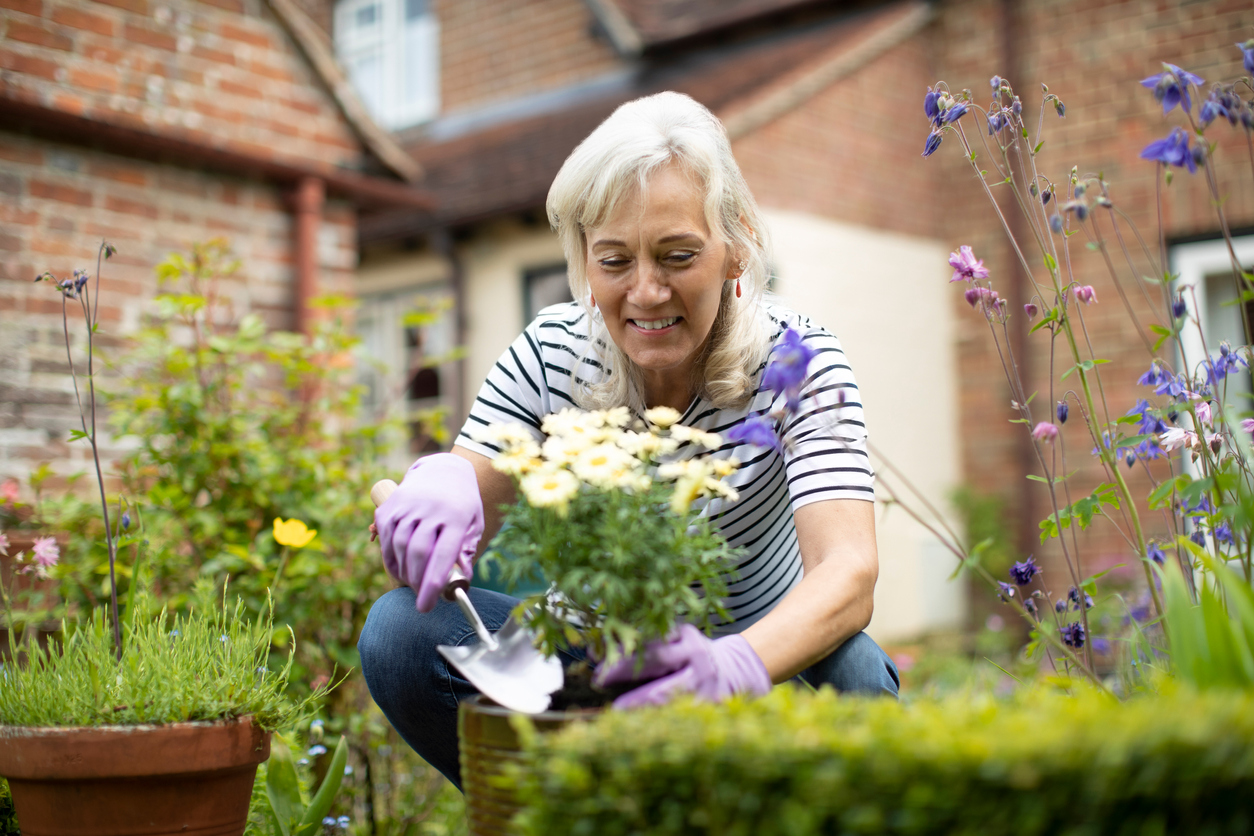Usually, at a certain point in a person’s grief, Deanna Upchurch will gently say some version of this:
Your loved one is gone, but you still have this enormous love for them. You’re going to keep loving them for the rest of your days. So what do you want to do with that love?
“There’s hope in the question,” says Deanna, HopeHealth’s Director of Community and Clinical Outreach Services. “When we’ve lost someone, we feel such a huge disconnect from them. But if we find a place to put our love, we feel connected, even after death.”
In honor of National Grief Awareness Day, we share advice and support for anyone who’s lost someone special.
> Related: Are you struggling to cope after the death of a loved one? HopeHealth offers free, virtual grief support groups.
Connect to your loved one through their hobbies.
In her work as a grief counselor, Deanna has seen this advice take many shapes.
“I knew one individual who baked her way through her mother’s cookbook,” says Deanna. Another devoted herself to learning to sail, a passion of her late husband’s.
Ideas:
- Work your way through your loved one’s favorite books, movies or music
- Try your hand at a skill or talent they were known for, from woodworking to photography
- Walk their favorite trails or spend time in their favorite places
- Travel to destinations that meant a lot to them
- Pick up one of their daily wellness routines, like morning journaling or an afternoon meditation
- Take a class in something they were interested in learning
- Join a club they were part of or would have enjoyed, like a cards night, fitness group, or collectors’ club
Over time, you may find that your new hobby becomes a way to process your grief.
“Maybe you had an overwhelming day, you’re missing your mother,” says Deanna. “All of a sudden it’s, ‘I’ve got to go home and bake something.'”
Support a cause your loved one cared about.
Was your loved one passionate about making the world a better place? Continue their good work.
“I’ve known families who started a foundation for their loved one, and put their heart and soul into planning that event,” says Deanna.
Examples:
- Fundraise for a cause your loved one cared about
- Volunteer with groups they supported
- Share your unique gifts as a volunteer for HopeHealth
- Donate their collections to a historical society or interest group
Maybe your loved one wanted to protect the environment, so you join a park cleanup. Maybe they always donated to the local animal shelter, so you decide to foster a pet. In other words, you can take the cause your loved one championed, and make it fulfilling for you.
> Related: 6 ways to help you heal after the loss of a parent
Make room for more meaning in your life.
When we lose someone special, we lose a vital source of love and connection. Plus, we often have a new perspective on what’s important.
“One woman in her 40s had a high-profile corporate job. After she lost her husband, she realized she wanted more meaning in her life,” says Deanna. “She needed connection to other human beings, and a feeling that she was doing something beautiful. She quit her job and became a preschool teacher’s assistant.”
A career change may not be practical for everyone, but think about other ways you can let more love and beauty into your life.
Consider:
- Spending time with a neighbor or young person who could use some one-on-one attention
- Adopting a pet
- Getting involved in your community
- Investing in yourself by pursuing a personal passion or goal
- Joining a grief support group or connecting with a counselor or therapist
Whatever you’re drawn to, give yourself permission to change to create more meaning in your life.
As you grieve, try to be the things you loved most about the person.
“What was your loved one known for?” says Deanna. “Find ways to emulate all the things you loved so much about them.”
This advice recently took on a special meaning for Deanna. For most of her life, she’d steered clear of gardening, never attempting so much as a houseplant. By comparison, her father was an avid gardener and bird-lover, practically an institution at the garden store where he worked.
After he died last year, she suddenly found herself adding plants to every corner of her yard, and meticulously filling the new bird feeders she’d installed.
It wasn’t until her husband pointed out her efforts that she realized what she was doing.
“It became a way to connect with my father in a way I hadn’t before,” she says. “This concept of putting your love somewhere — it’s a way to get to know your loved one even after they’re gone.”

